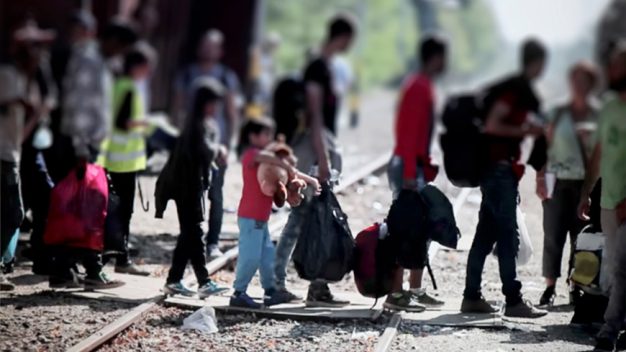
World Health Organization: Children among crucial focus areas for new migration research
Children’s rights will likely be one of the core focus areas of the World Health Organization’s (WHO) first-ever global research agenda on health, migration and displacement, shaping research on understanding the health needs of all forcibly displaced populations and how to form responsive policies and practices worldwide.
The WHO says a billion people are currently leaving their homes by choice or force due to various factors such as wars, conflicts, income inequalities, economic shifts, urbanisation, and climate change. It is essential, says WHO, to develop evidence-based policies that ensure no one is left behind.
But it acknowledges that currently there is a ‘lack of comprehensive knowledge about what works to better support the health of people on the move’. “This gap in knowledge impacts people’s well-being, and it slows down global progress towards universal health coverage (UHC) and Sustainable Development Goals (SDGs),” adds WHO.
‘Ensure that no one is left behind’
During a year-long consultative process involving around 180 key stakeholders, a total of five priority research themes were identified for greater investment:
- Ways to scale up access to services and achieve inclusive universal health coverage, especially: evidence on effective health financing models and how health systems can better respond to the diverse needs of people on the move.
- Actions to make health emergency preparedness more responsive to the needs of migrants and those forcibly displaced, particularly: effective and sustainable health care models in humanitarian settings in low- and middle-income countries and models of UHC in protracted displacement contexts.
- Better understanding of the determinants of health and ways to address them, particularly on: the impact of living and working conditions as well as restrictive immigration policies on the health of migrants, refugees, and other displaced people.
- More visibility for under-researched groups of migrants and forcibly displaced populations, for example: children, people in immigration detention, or people who are internally displaced.
- New ways to collaborate in research and translate research into policy and practice.
Dr Tedros Adhanom Ghebreyesus, WHO Director-General, said this latest project was ‘an important step in our efforts to drive evidence-informed policies and practices’. “By bridging the knowledge gap on the health needs of some of the world’s most vulnerable populations, the report will help us navigate a world that is increasingly on the move,” he added.
All of the identified themes are relevant to all areas of global public health and policy development and can be applied to varying geographical regions and migration contexts. If translated into action, says WHO, they will improve research on the health of migrants, refugees and all forcibly displaced populations, support countries to develop health systems that are more responsive to current and future population movement and protect and promote the health of all people on the move and their receiving communities worldwide.
It will also encourage progress by supporting leaders at all levels to make inclusive, evidence-informed health care policies
Dr Jeremy Farrar, Chief Scientist for WHO, said: “In today’s interdependent and interconnected world and with the many ongoing severe acute and protracted crisis around the world, migration and displacement cannot be considered separate issues from other efforts in global health.
“The global research agenda on health, migration and displacement is a call to action and an alarm bell to expand global knowledge on the health needs of migrants and forcibly displaced. We need to know more about their access to health services, their inclusion in health systems, the best ways to respond to their needs during health emergencies and turn all of this evidence into tangible impact.”




